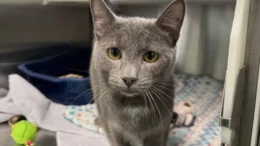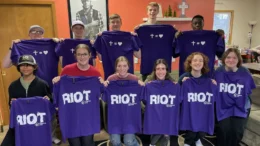LOS ANGELES (AP) – You’re mystified by the number of destined-for-failure shows on TV and figure you could make better picks than network executives.
Or you sneer at the recycled concepts of too many dull series when you have a killer original story to tell.
Whether you fall into either camp or both, there’s a new website for you to play on: I’d Watch That, which launched five months ago with some heavyweight financial backers.
It invites aspiring TV makers to post a “sizzle” reel of up to two minutes in length that demonstrates an idea’s potential to become a series. The public gets to judge the proposals, with research methodology used to analyze the results and create a popularity ranking, said CEO Tom Zito.
The goal is sell the top ideas to the exploding number of content-hungry broadcast, cable and online outlets with Big Picture Inc., the website’s parent company, on board as a producer. The investors include William Randolph Hearst III; former AOL chairman and CEO Barry Schuler, and John Fisher of venture capital firm Draper Fisher Jurvetson.
I’d Watch That is designed as an open marketplace of TV ideas in a closed, relationship-bound industry, an approach that aims to turn the annual multibillion-dollar process of developing new series “on its head,” said Zito, a journalist turned entrepreneur.
In the traditional approach, “until money is spent to get shows made into pilots, no consumer sees a project,” he said. Even Amazon, which does online testing of potential new series, makes full pilot episodes for consumers to assess, Zito said.
One proposal featured on I’d Watch That is a 1960s drama about women working at a Cosmopolitan-like magazine during the dawn of feminism (“Mad Men” meets “Sex and the City,” Zito calls it) from a filmmaker-writer, PJ Posner.
Another is “The Last Templar,” about a 14th-century vengeance-seeking survivor of the soldiers whose duties included protecting the Roman Catholic Church until they were betrayed.
Its creator is Daniel Madore, who earned a media and film degree in 2011 from the University of San Francisco. He’s been paying his dues in a variety of jobs, including production assistant, art director and grip, while directing music videos and short films on the side.
“When it comes to getting your work shown, it is quite the headache and the grind,” he said, with uncertainty surrounding every avenue from film festivals to YouTube. While he’s cautiously optimistic about what the I’d Watch That website might yield, he says the concept has merit.
“Crowdsourcing is part of a new generation of viewers. The audience now has a very strong voice and one would be foolish to ignore it,” Madore said in an email exchange from Europe.
One expert agrees with that perspective.
“The idea of democratizing Hollywood for the world and democratizing good stories is an interesting one,” said Peter Csathy, CEO of Manatt Digital Media, a business consulting and legal services firm.
But to be effective the new website will have to “break through the (online) noise” to garner a critical mass of participants among both content creators and the audience judging their work, Csathy said.
Zito, formerly a staffer at The Washington Post and contributor to New Yorker magazine, saw what he considers the dysfunctional TV process up close as a writer on a short-lived drama series. “Capital News,” set at a Washington newspaper, lasted for three low-rated episodes in 1990 before it was axed.
That left 10 costly unaired episodes and a bemused Zito.
“It made me scratch my head about the seeming randomness about the way television shows were created,” he said. His segue into business included the creation of several previous companies including Integrated Media Measurement Inc., which tracked viewership on outside-the-home platforms including computers and mobile devices.
Zito sold the firm but put his research expertise to work again for I’d Watch That. While he said thousands of people have logged on, he declined to specify the number and said it’s not critical- the site doesn’t need large numbers to function effectively as an online focus group, according to Zito.
“We’re not trying to be a destination viewing site,” he said. “We really are a research company trying to find content with a better chance of becoming successful. … We will live or die based on how that content does.”
The company also declined to release the number of proposals it’s received or how close it is to any production deals. Investor Hearst, lauding Zito’s business track record, noted it’s still a fledgling enterprise.
Madore said he hopes his idea will come to fruition through I’d Watch That but is counting other rewards.
“You can start to see what viewers want and what they don’t want. They give their opinion and you can sort through it all and that only makes your idea and project stronger,” he said.






































